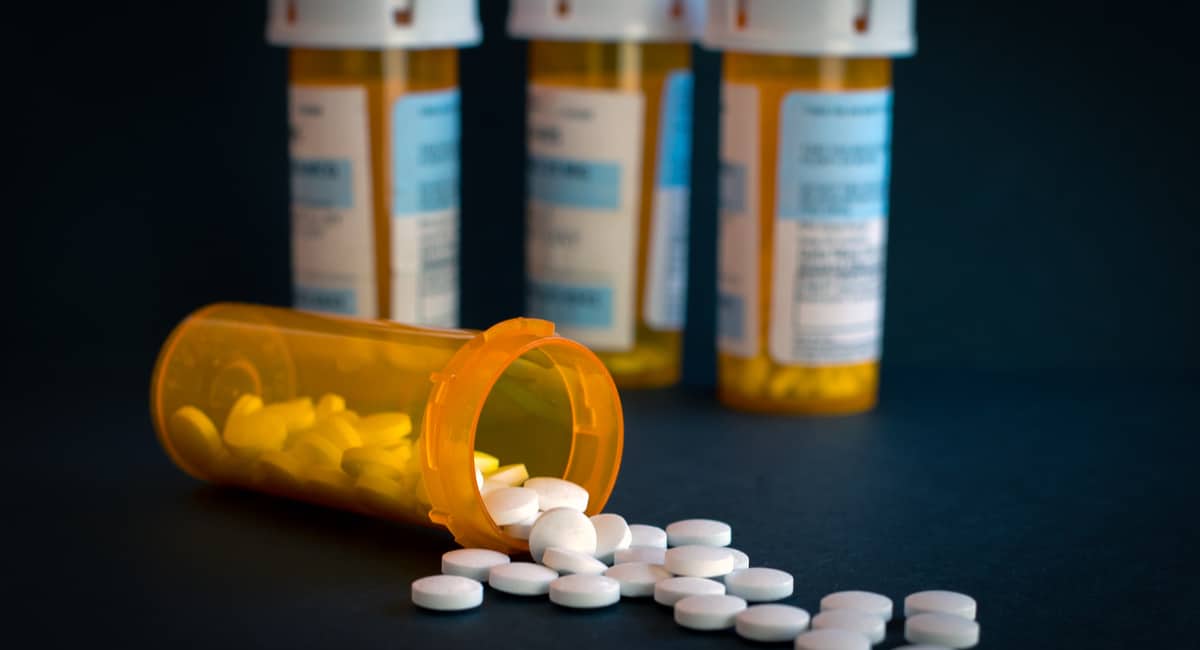MICHIGAN RECEIVES $800 MILLION IN EPIC OPIOID SETTLEMENT WITH MAJOR DRUG COMPANIES

Michigan will receive about $800 million as part of a $26 billion settlement between major pharmaceutical companies, states and municipalities across the country. The funds will be used to expand statewide efforts to combat the opioid epidemic that continues to devastate our communities.
The Sam Bernstein Law Firm is proud to be part of the legal team that worked tirelessly to achieve this historic recovery.
The lawsuit targeted three pharmaceutical distributors, Cardinal, McKesson, and AmerisourceBergen, and major opioid manufacturer Johnson & Johnson. The litigation was coordinated by attorneys general across the U.S, including Michigan Attorney General Dana Nessel.
The settlement is the largest multistate agreement since 1998, when a lawsuit against four major tobacco companies resulted in a payout of more than $200 billion.
“It was an honor to play a role in bringing this much-needed compensation to communities throughout Michigan and across the country,” said Mark Bernstein, President and Managing Partner of The Sam Bernstein Law Firm. “This case was about more than money. Holding greedy drug companies responsible for the harm they cause exemplifies our decades-long commitment to fighting injustice and protecting those most vulnerable.”
WHAT WAS THE BASIS FOR THE LAWSUIT?
The lawsuit accused the pharmaceutical companies of intentionally deceiving patients and doctors through misinformation and misleading promotional materials. While drug manufacturers and distributors knew that opioids carried a high risk of addiction and overdose, they hid these facts from the public and spent millions of dollars on deceptive marketing campaigns. The plaintiffs sought compensation for the widespread misery and countless deaths that resulted from the dishonest and irresponsible actions of these companies.
WHEN WILL MICHIGAN RECEIVE ITS SHARE OF THE SETTLEMENT?
The approximately $775 million allocated for Michigan will be distributed over the next several years, beginning in as early as April 2022. According to the agreement, half of the money will go to the state while the rest will go to counties, cities and other municipalities.
The isolation and reduced access to resources during the pandemic spurred a nationwide mental health crisis that included a rise in drug use, addiction and suicide. In the year between April, 2020 and April, 2021, more than 100,000 people in the U.S. died from drug overdoses, more than the combined number of deaths resulting from auto accidents and guns in the same time period.
The allocations for each community are based on a formula that includes population, the quantity of opioids delivered and prescribed, the number of people who died from drug overdoses and the number of residents with identified substance abuse disorders.
HOW WILL THE FUNDS BE USED?
According to the National Settlement Agreement between the drug companies and the plaintiffs, the funds must be used for programs and services relating to the treatment and prevention of opioid addiction. Here are some examples:
- Treatment and prevention of Opioid Use Disorder (OUD)
- Support for those in recovery
- Helping individuals and families find appropriate services
- Assisting those involved in the criminal justice system
- Providing support to pregnant women, infants and parents
- Training and support for first responders
- Leadership planning
- Research
WHAT ACTIONS ARE THE DRUG COMPANIES REQUIRED TO TAKE?
In addition to the monetary compensation, the National Settlement Agreement requires the drug companies to meet certain conditions that include establishing programs to decrease opiate addiction and abuse.
Opioid distributors Cardinal, McKesson and AmerisourceBergen must take the following actions:
- Establish a centralized independent clearinghouse that tracks the flow of opioids more accurately than current methods
- Use data-driven systems to detect suspicious opioid orders from retail pharmacies
- Terminate pharmacies' ability to receive shipments and report those who do not comply
- Prohibit sales staff from influencing decisions related to identifying suspicious opioid orders
- Require senior corporate officials to oversee efforts to reduce suspect or illegal activity
Johnson & Johnson is prohibited from engaging in any of the following:
- Selling or promoting opioids
- Providing funds or grants to third parties involved in the promotion or sales of opioids
- Lobbying activities related to opioids
In addition, Johnson & Johnson is required to share clinical trial data under the Yale University Open Data Access Project.
In The news and media
Click on any of the below links to see additional news updates and how The Sam Bernstein Law Firm is helping Michigan residents impacted by the nationwide opioid epidemic:
- MLIVE- Gennesee County To Receive Nearly $16M From Historic Opioid Settlement
- CLICKON DETROIT- Michigan To Get Nearly $800M In Opioid Settlement To Help With Prevention And Treatment
- FOX 2 DETROIT- State To Get $800M In Opioid Settlement; Nessel Shares Own Experience With Prescription Addiction
- MICHIGAN RADIO- Opioid Settlement Money Coming To Michigan
- WNEM Channel 5- Nessel And Genesee County Officials Promote Historical Opioid Settlements
- WLUC FOXUP- Marquette County To Receive $1.9M Opioid Settlement
- TRAVERSE CITY RECORD EAGLE- GTC Receives $3M In National Opioid Lawsuit Settlement
- 9&10 NEWS- What Opioid Settlement Funds Look Like For Michigan
- MICHIGAN RADIO- Stateside: Monday, March 21, 2022
HAVE YOU BEEN INJURED?
Get The Bernstein Advantage® today!
Free. Simple. Quick.

